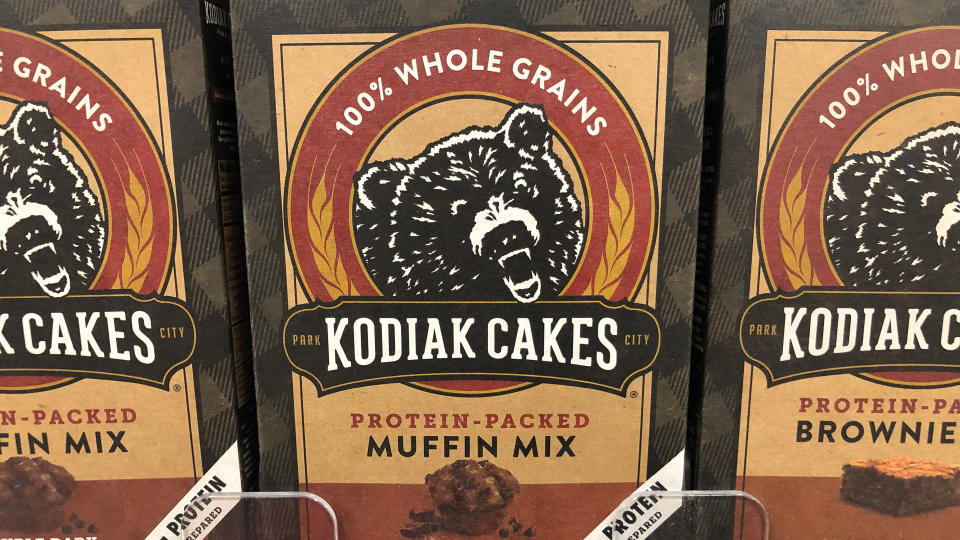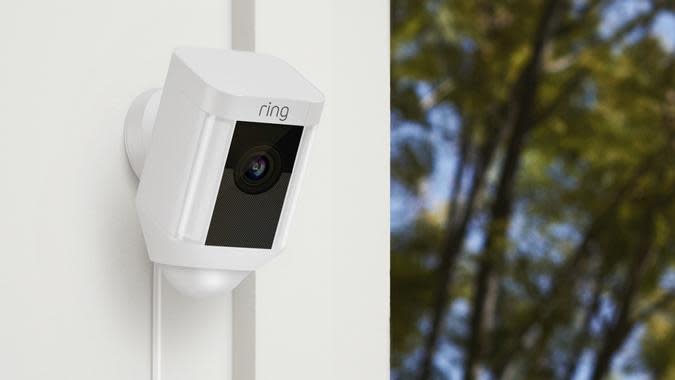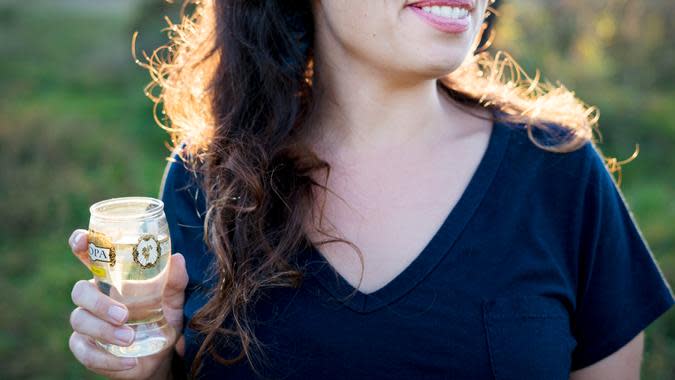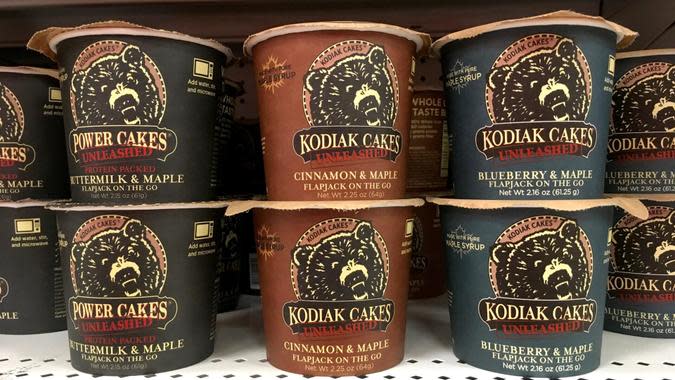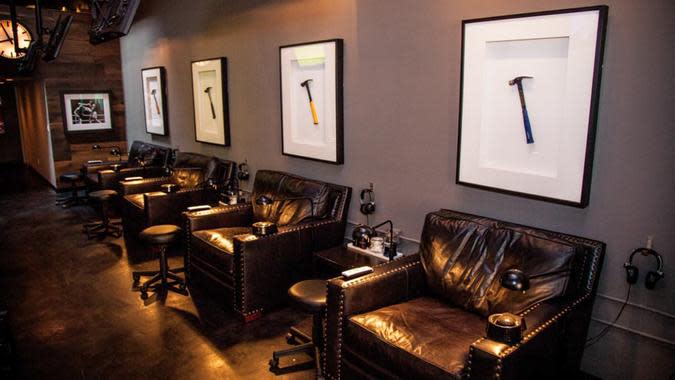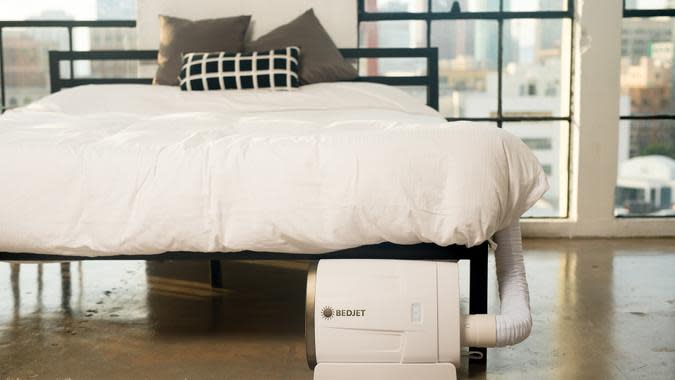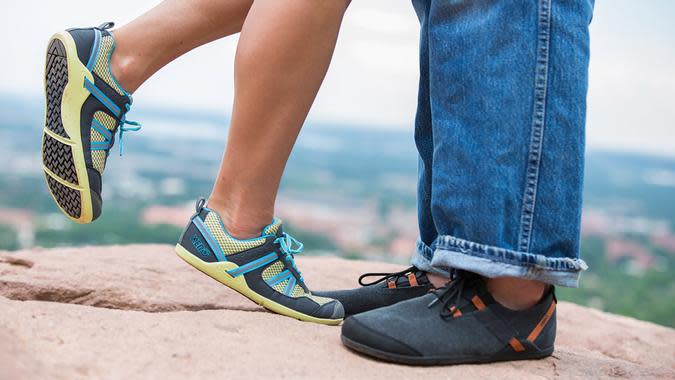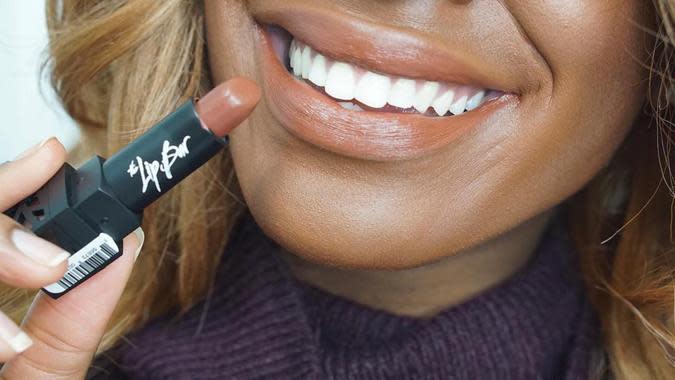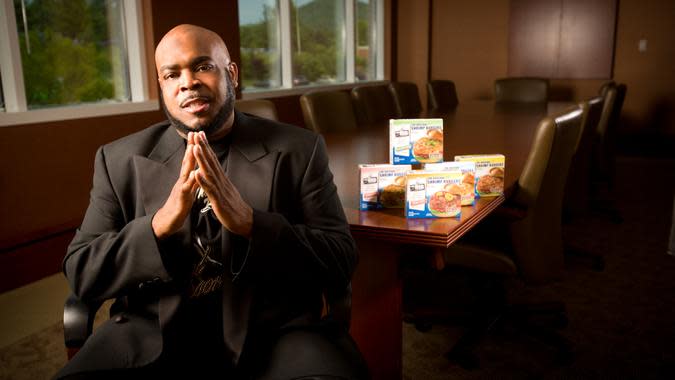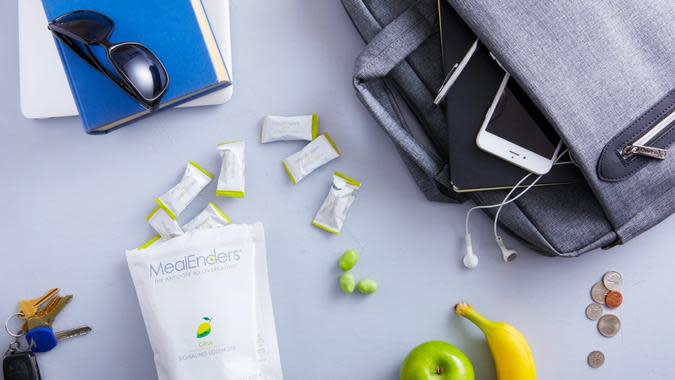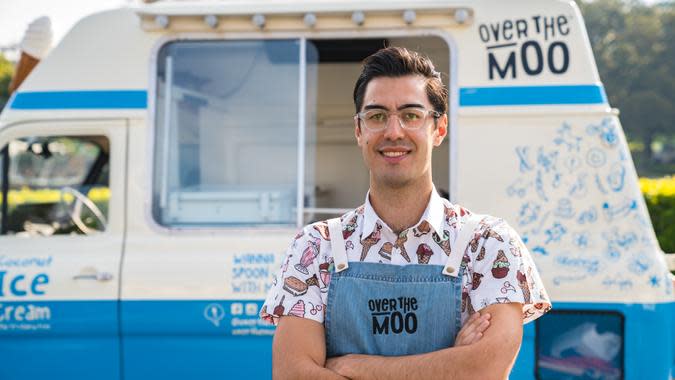ABC's "Shark Tank" has doled out $100 million worth of deals to hungry entrepreneurs, which currently has 14 seasons.
Learn: 10 Best Cash Advance Apps That Cover You Until Payday
Money Advice: How To Build Your Savings From Scratch
While not everyone manages to wow the panel of investment-hungry sharks, they've gone on to become successful without their financial investment. Here's a look at a few of those entrepreneurs and inventors whose ideas the sharks rejected, then rocketed on to success anyway.
Ring
One of the most notorious (and successful) Shark Tank rejects started as a video doorbell name Doorbot. After a famously tepid reaction from the sharks, Amazon later bought the company for a deal worth nearly $1 billion. By early 2018, the company introduced a smart home doorbell dubbed Ring. While creator Jamie Siminoff may have left season five of "Shark Tank" empty-handed, despite investing $10,000 in his presentation, his invention currently brings in roughly $577 million a year.
$2,000 Quarter? Check Your Pockets Before You Use This 2004 Coin
Cash App Borrow: How To Borrow Money on Cash App
Copa di Vino
Vintner James Martin made his mark on "Shark Tank" early when he presented single-serve wine in a plastic container during the show's second season. None went for his $600,000 investment in exchange for 30 percent ownership. It seems the sharks wanted Martin's container, but not his wine.
Despite a rare second round in the tank on season three, due to his impressive success, Martin never made it work with the show's investors. The winemaker knew he had a successful product, thus he came across as arrogant. Without the sharks in his corner, Copa di Vino has gone on to make $3.5 million per year.
Take Our Poll: Who Has Given You the Best Money Advice You Have Ever Received?
Kodiak Cakes
Launched in January 2014, Kodiak Cakes found itself in the tank in April of that year. When co-founder Joel Clark offered 10 percent ownership for a $500,000 investment, he projected that his family's protein-heavy whole-grain pancake mix would make $20 million through 2018.
At the time, Clark left without a deal. Flash-forward to today and the company is pulling in roughly $160 million in annual revenue and has since vastly expanded its product line.
Hammer and Nails
Despite being invited to the tank just five weeks after opening his first store, Michael Elliot's idea of putting the "man" in "manicure" wasn't a hit with the sharks. His hopeful offer of a 20 percent stake in a Hammer and Nails salon franchise for a $200,000 investment was turned down. This was back in 2014 when Elliot estimated his company's value at $1 million.
Although the sharks didn't bite, angel investors who had seen the episode came forward. From $200,000 of seed money, the currently bustling Hammer and Nails chain was valued at $100 million by mid-2017. By 2021, they reported a 270 percent increase in revenue from the years prior.
BedJet
In 2015, all five sharks shot Mark Aramli and his BedJet right out of dreamland. Two years later, Aramli told HubSpot that they disliked his fast-cooling fan system for under-the-bed sheets. "They hated me and they hated my product. They told me no one would ever want the BedJet."
The words of the sharks aren't gospel, though. With his own life savings, credit cards and a mortgaged house, Aramli invested in himself. By the time 2016 came to a close, sales rose 300 percent from the prior year, tracking double that in 2017. The company now has about $5 million in annual sales, with more than $30 million in total sales to date.
Zelle Scams on Facebook Marketplace: How To Recognize and Avoid Them
Xero Shoes
Even though a 2013 appearance on "Shark Tank" left owner Lena Phoenix with no new investment money, it did lend credence to the notion that there's no such thing as bad press. By the time the episode was over, Phoenix and husband/co-founder Steven Sashen were flooded with orders, raised over $1 million through crowdfunding, and became official partners with USA Artistic Swimming in July 2020.
The Lip Bar
Things looked bleak when one of the Sharks called the vegan, paraben-free and gluten-free lipsticks in front of them "colorful co*ckroaches." Since then, founders Melissa Butler and Roscoe Spears have seen success despite the rejection, which was cemented when actor Taraji P. Henson wore their product to the Oscars in 2018. Their product is available at Target stores nationwide, and The Lip Bar earns $1.6 million in revenue annually.
Big Shake's Hot Chicken and Fish
Shawn "Chef Big Shake" Davis had a problem during his season-two appearance on "Shark Tank," almost all the investors loved the shrimp-based burger patty he developed with his daughter, but none of them wanted to invest in it.
Once again, it was viewers who came to the rescue. As Davis tells Delish in 2017, his time on the show started his phone ringing "off the hook" until a genuine investor came calling. Within a year after Davis' televised rejection, his $30,000 company was worth $5 million, with products available in stores across the U.S. Davis now runs a chain of chicken restaurants.
Make Money With AI and Chat GPT: How To Earn $1,000 a Month
The Bouqs Co.
John Tabis of Bouqs wants to trim out the middleman and sell flowers directly to consumers. The sharks didn't bite in 2014, but everything blossomed from there. Then-shark Robert Herjavec needed flowers for his wedding, so he went to Tabis and invested in a round that generated $24 million in capital. Since 2017, Tabis reported several days with over $1 million in sales, and the company's raised more than $88 million since.
Rocketbook
Rocketbook's "Shark Tank" pitch was nothing if not wild. Company founders Jake Epstein and Joe LeMay brought a smartphone-compatible notebook to the table, which offered instant cloud-sharing features and could have its pages wiped clean for reuse by placing it in the microwave.
The idea might've been too out there for the sharks at the time, but consumers seem to like it just fine. The first Rocketbook went on to become an Amazon best-seller after $1.2 million worth of Indiegogo funding. By 2020, they had $32 million in net sales, up 35 percent from 2019.
MealEnders
In 2017, Mark Bernstein asked the sharks for $300,000 in exchange for 8 percent of his company, MealEnders, a company that made a lozenge claiming to curb the appetite and ward off desert cravings naturally. Though Bernstein had already sold $1.4 million worth of product on his own Amazon store in just 18 months, "Shark Tank" investors weren't into the taste and proved wary of anything that might be dubbed a fad "diet product." Following the airing of Bernstein's episode, the company's sales were at $5 million.
I'm a Financial Planning Expert: Here Are 5 Things You Should Never Spend Money on If You Want To Be Rich
Over the Moo
In season three of "Shark Tank," the sharks didn't go for Alex Houseman's pitch on the Australian version of the series. Although the tank's Aussie investors wished Houseman "luck and chutzpah," he might not need it after all. The company's net worth has crossed the $1 million mark.
More From GOBankingRates
5 Expensive Renovations Homeowners Always Regret
Financial Insight in Your Inbox: Sign Up for GBR's Daily Newsletter
3 Ways to Recession Proof Your Retirement
7 Things You Must Do To Create a Plan for Your Money
Dan Ketchum contributed to the reporting for this article.
This article originally appeared on GOBankingRates.com: ‘Shark Tank’ Rejects That Became Super Successful
As a seasoned expert in the realm of entrepreneurial success stories and the dynamics of television investment pitches, I bring a wealth of firsthand knowledge and insights to the table. Over the years, I've closely followed the trajectory of countless ventures that have navigated the challenging waters of shows like ABC's "Shark Tank" and emerged triumphant despite initial rejection. Let's delve into the article and dissect the key concepts related to the entrepreneurs and their ventures that defied the odds.
-
Ring (formerly Doorbot):
- Rejected Offer: Despite a tepid reaction from the sharks, Jamie Siminoff's video doorbell, initially named Doorbot, later became Ring, which was acquired by Amazon for almost $1 billion.
- Financial Success: Ring currently boasts an annual revenue of approximately $577 million, demonstrating the immense success that followed the rejection on "Shark Tank."
-
Copa di Vino:
- Rejected Offer: James Martin's single-serve wine in a plastic container didn't secure a deal, but Copa di Vino went on to make $3.5 million per year.
- Success Despite Rejection: Despite not working with the show's investors, the winemaker's product achieved impressive success, highlighting that rejection on the show didn't hinder Copa di Vino's growth.
-
Kodiak Cakes:
- Rejected Offer: Co-founder Joel Clark left without a deal for his family's protein-heavy whole-grain pancake mix.
- Current Success: Kodiak Cakes, launched in 2014, is now pulling in roughly $160 million in annual revenue, showcasing substantial growth and success post-"Shark Tank."
-
Hammer and Nails:
- Rejected Offer: Michael Elliot's idea of a "manly" nail salon franchise was turned down, but angel investors later valued the company at $100 million.
- Impressive Growth: From $200,000 of seed money, the Hammer and Nails chain reported a 270 percent increase in revenue by 2021, highlighting the success post-"Shark Tank."
-
BedJet:
- Rejected Offer: Mark Aramli's fast-cooling fan system for under-the-bed sheets was disliked by all five sharks.
- Successful Investment: Despite initial rejection, BedJet reported $5 million in annual sales by 2017, showcasing substantial sales growth and the viability of the product.
-
Xero Shoes:
- No New Investment: Lena Phoenix received no new investment money after a 2013 appearance, but the episode generated orders and crowdfunding success.
- Post-Show Success: Xero Shoes raised over $1 million through crowdfunding, becoming partners with USA Artistic Swimming, and highlighting the positive impact of media exposure.
-
The Lip Bar:
- Rejected Description: The sharks called the vegan, paraben-free, and gluten-free lipsticks "colorful co*ckroaches."
- Post-Rejection Success: Despite the initial rejection, The Lip Bar achieved success, especially when actor Taraji P. Henson wore their product to the Oscars in 2018.
-
Big Shake's Hot Chicken and Fish:
- Problematic Investment: The sharks loved the product but didn't want to invest in Shawn "Chef Big Shake" Davis's shrimp-based burger patty.
- Viewer Support: Viewer interest post-"Shark Tank" led to genuine investor support, and within a year, the company's value grew from $30,000 to $5 million.
-
The Bouqs Co.:
- Rejected Pitch: John Tabis's pitch to sell flowers directly to consumers didn't entice the sharks in 2014.
- Post-Rejection Investment: Shark Robert Herjavec later invested, generating $24 million in capital, and since 2017, The Bouqs Co. has reported several days with over $1 million in sales.
-
Rocketbook:
- Unconventional Pitch: The founders presented a smartphone-compatible notebook with cloud-sharing features and reusable pages by microwaving.
- Consumer Success: Despite the unconventional pitch, Rocketbook became an Amazon best-seller with $32 million in net sales by 2020, illustrating consumer acceptance and success.
-
MealEnders:
- Rejected Pitch: Mark Bernstein's appetite-curbing lozenge company faced skepticism from the sharks.
- Sales Growth: Despite initial reservations, MealEnders reported $5 million in sales following the airing of Bernstein's episode, showcasing consumer acceptance.
-
Over the Moo:
- Rejection on Australian Version: Alex Houseman's pitch on the Australian version of "Shark Tank" didn't secure a deal.
- Current Net Worth: Despite the rejection, the company's net worth has crossed the $1 million mark, highlighting success beyond the show.
In conclusion, these examples underscore the resilience and ultimate success of entrepreneurs who faced rejection on "Shark Tank," proving that a lack of investment on the show does not necessarily impede future triumphs in the business world.
